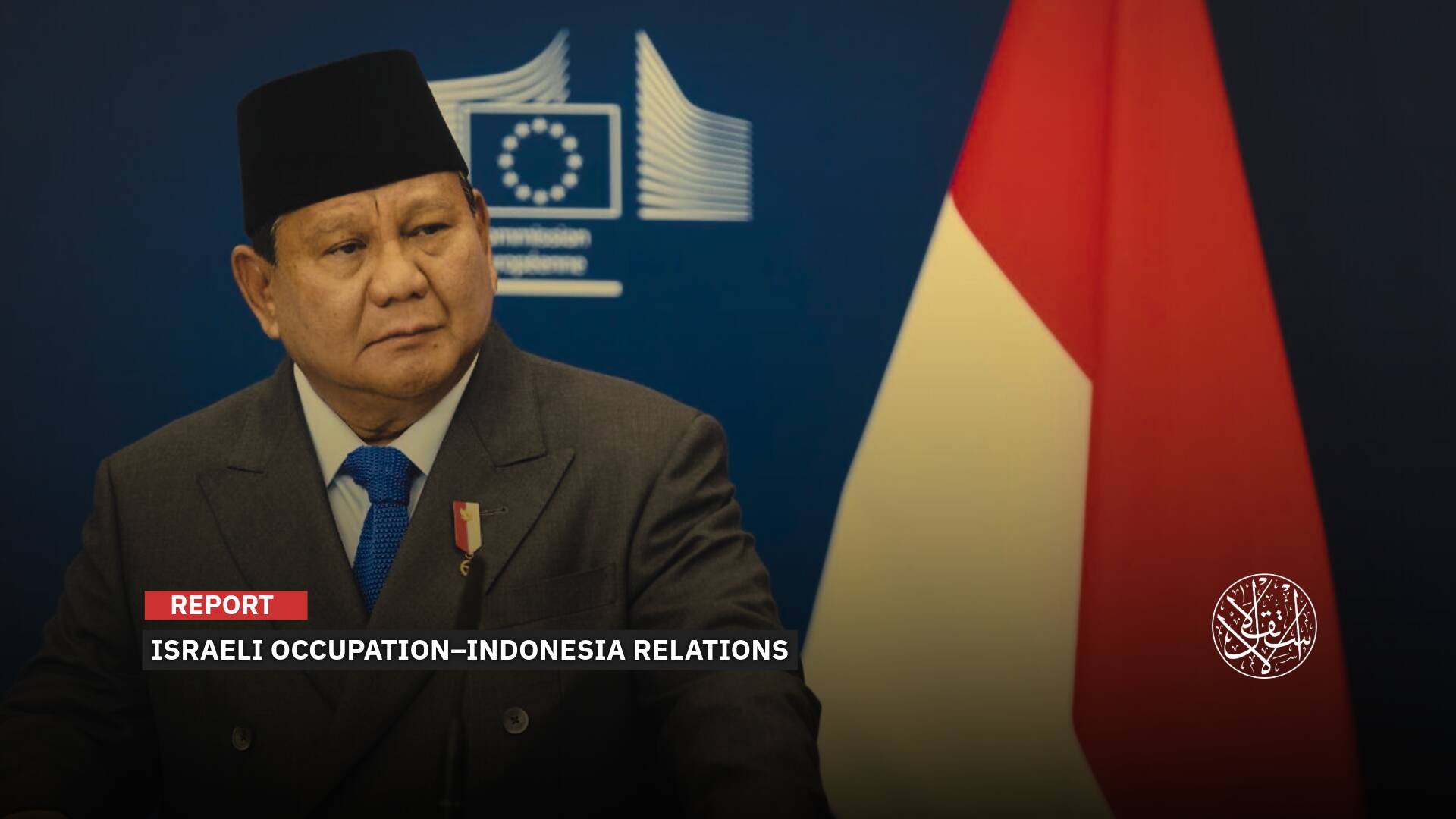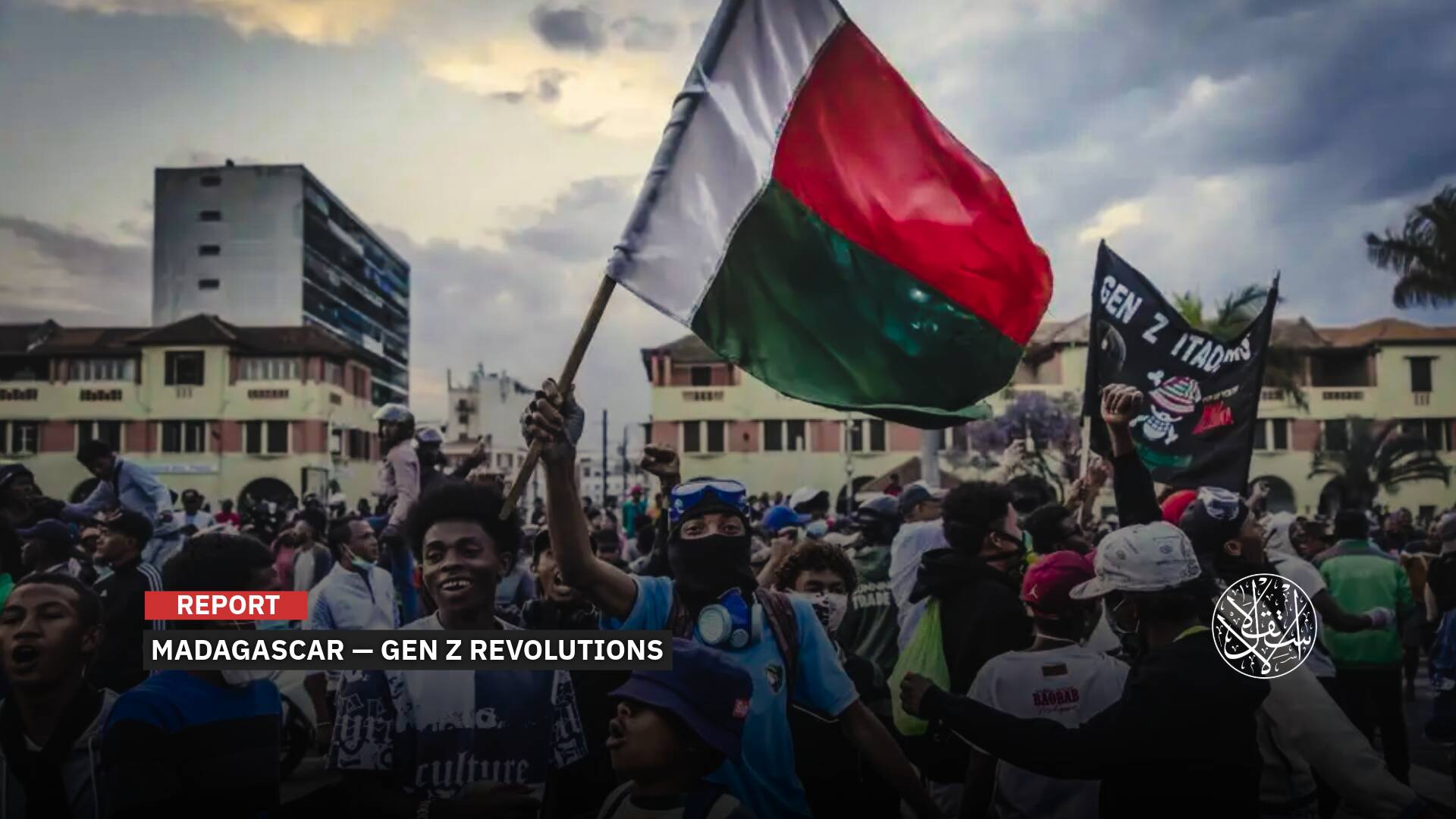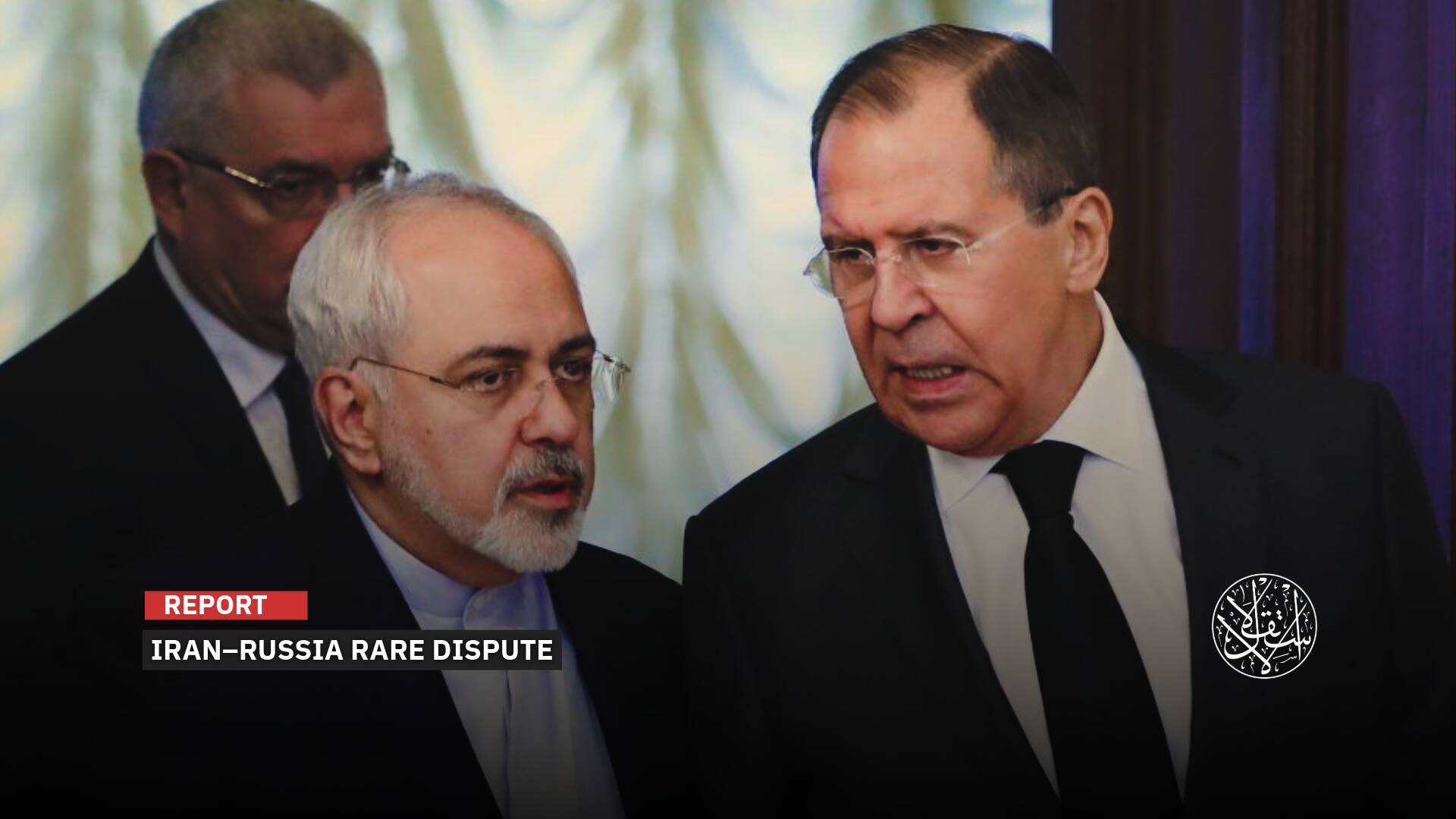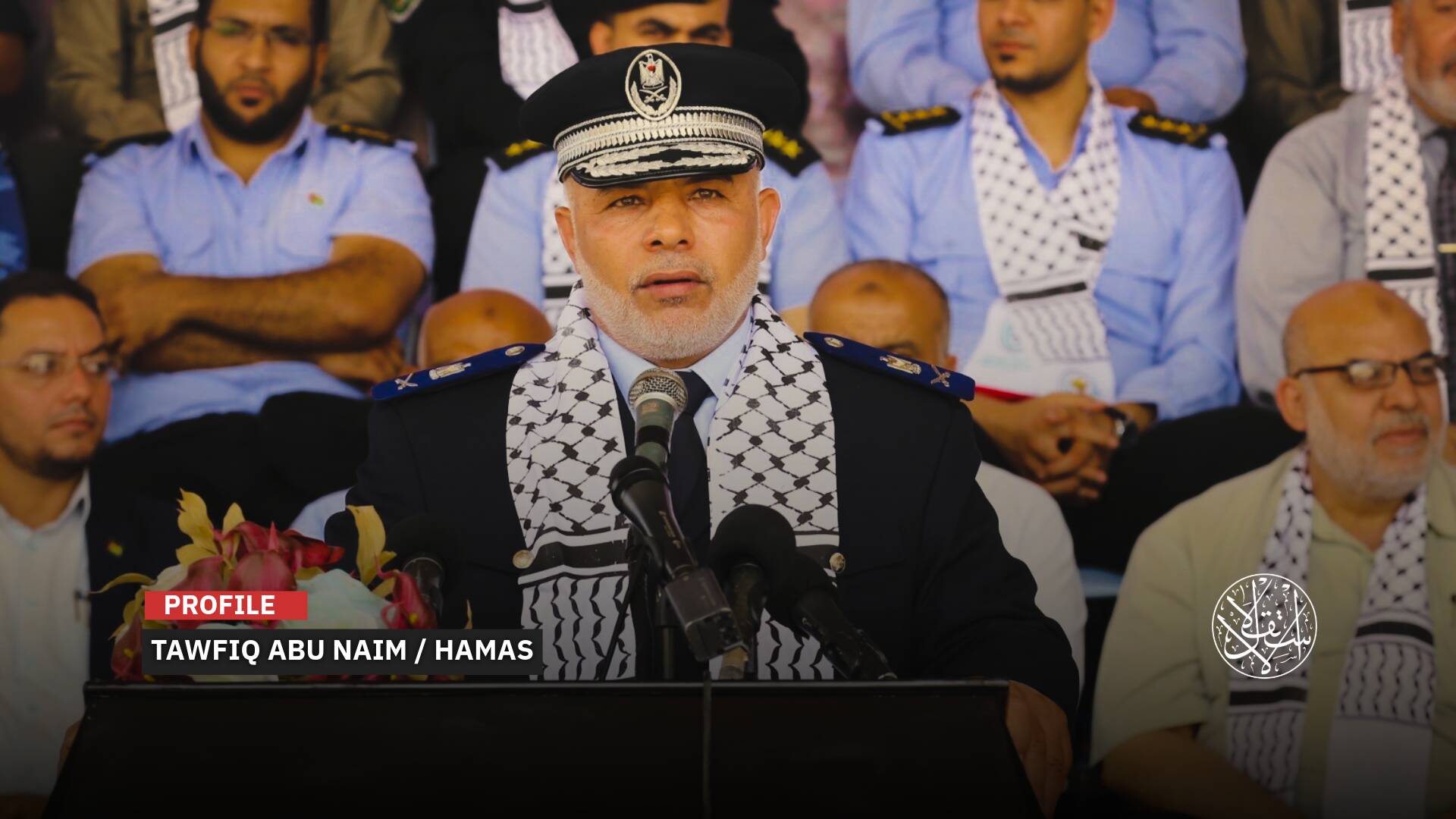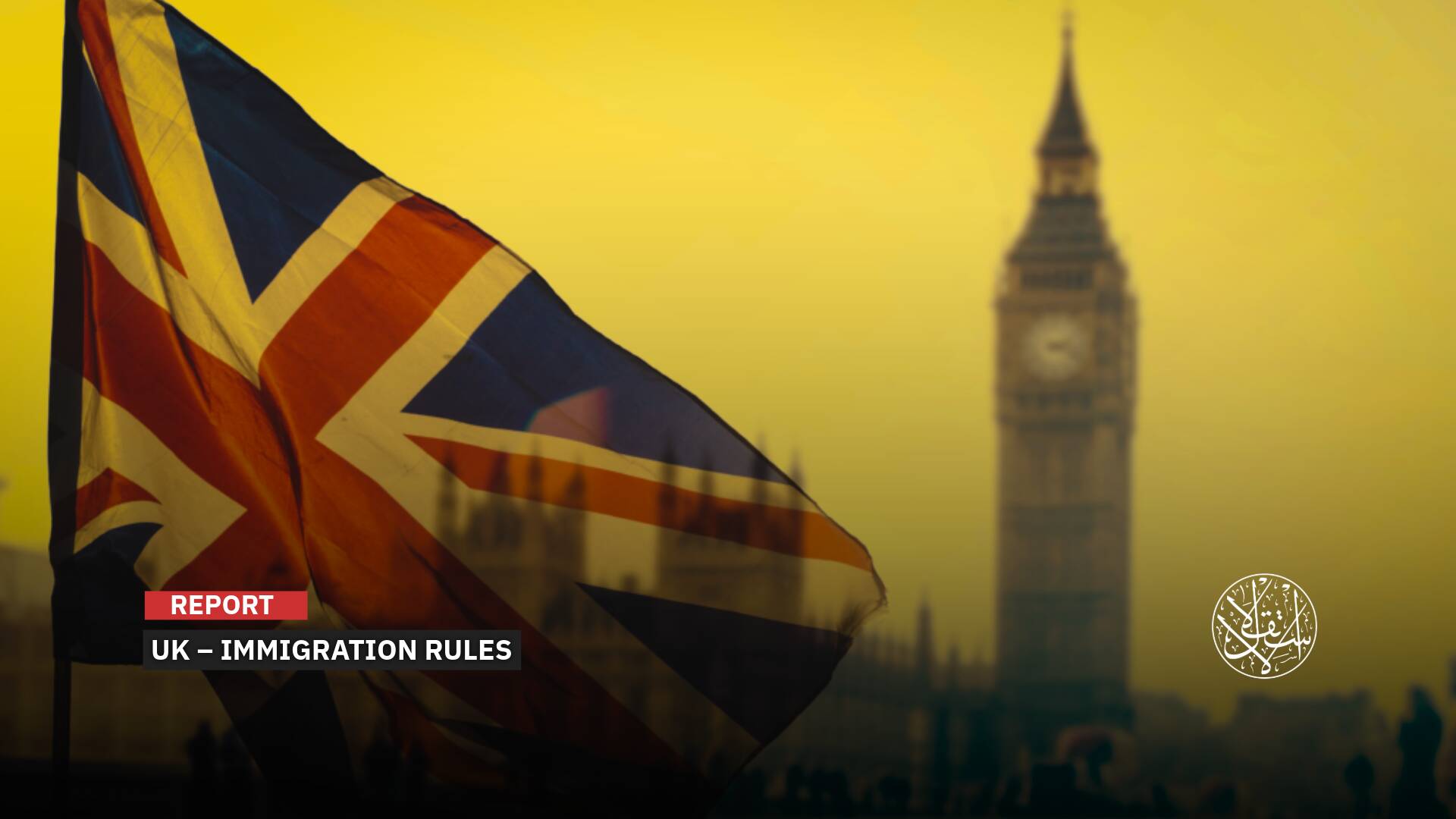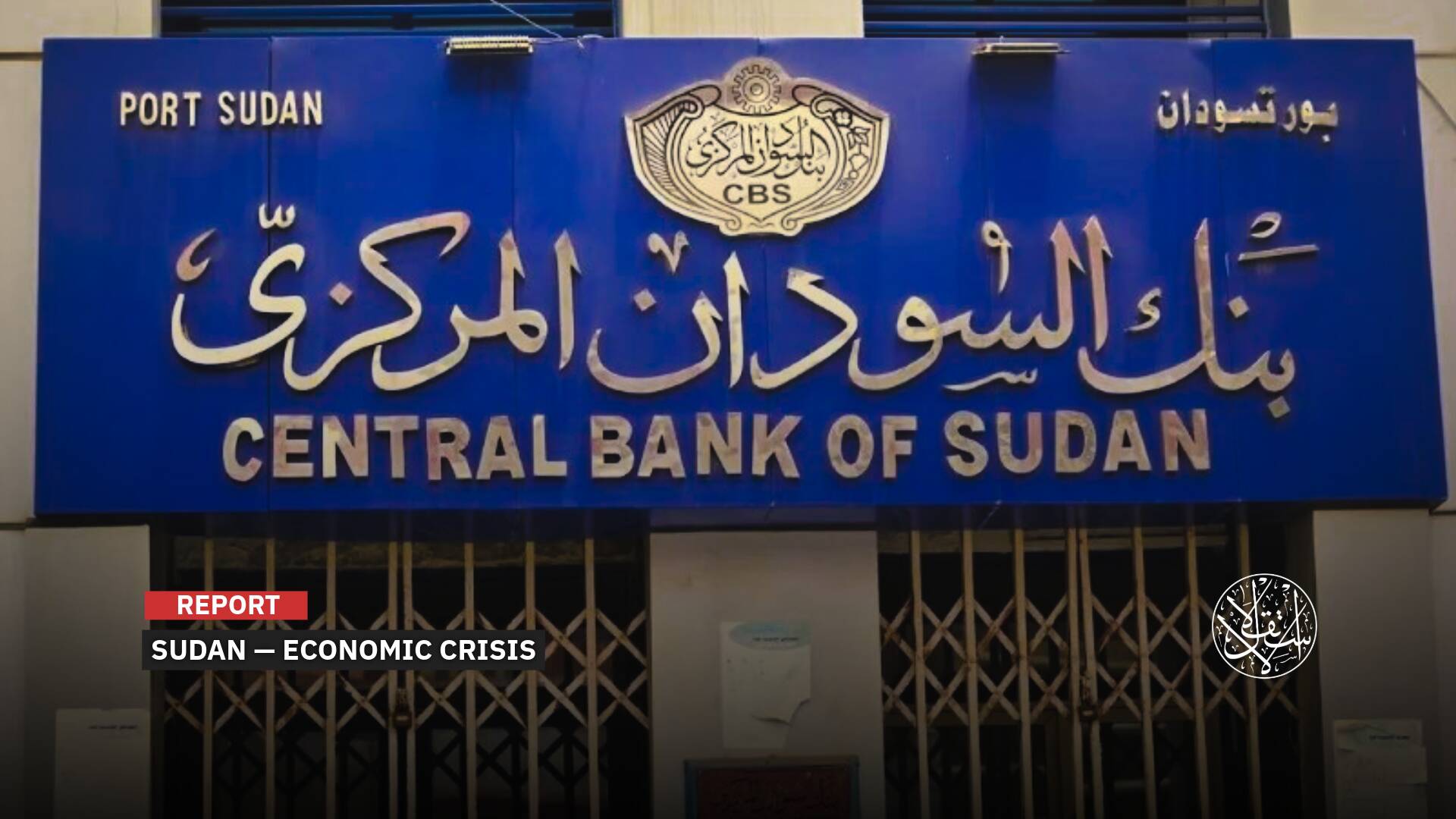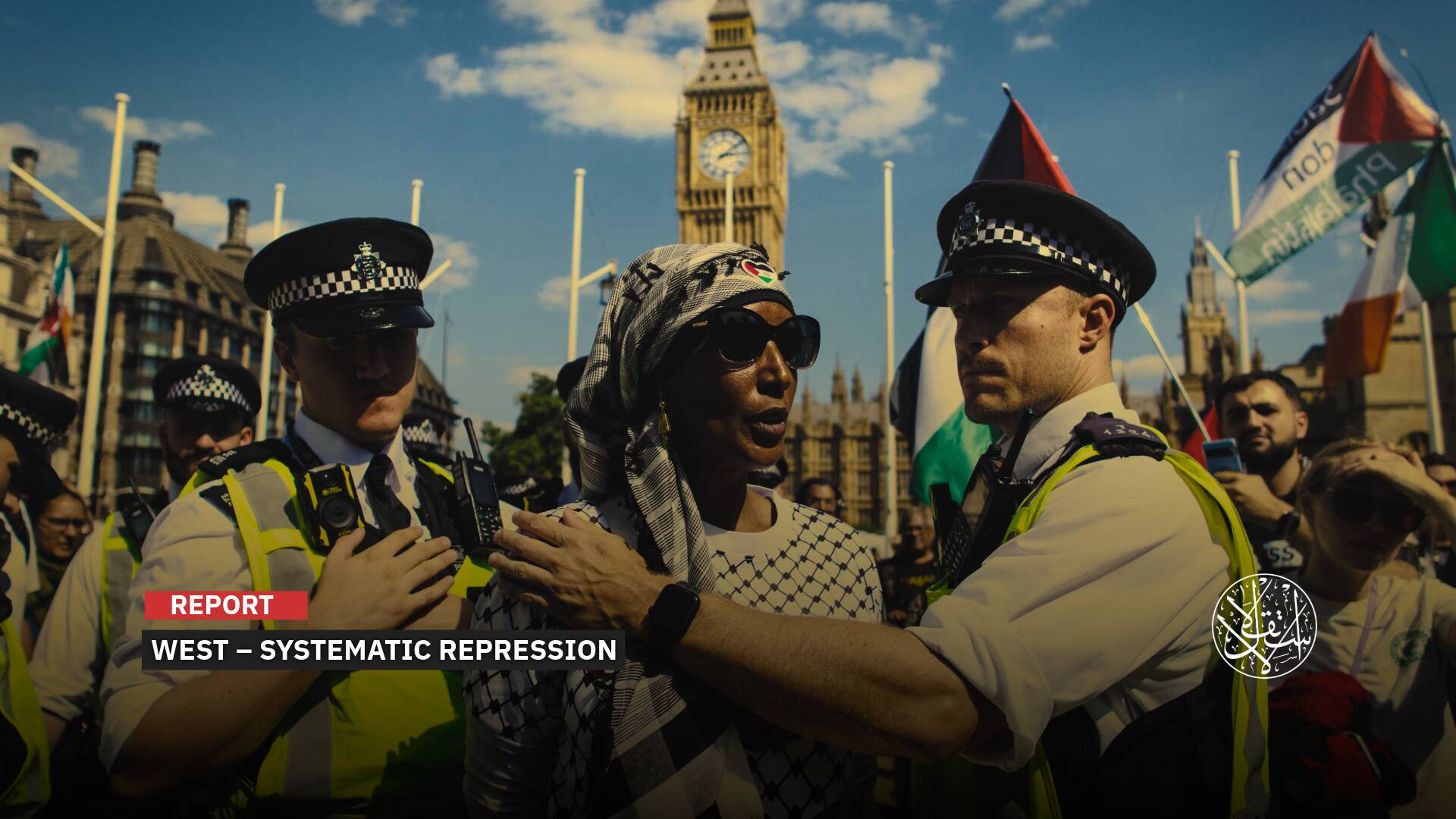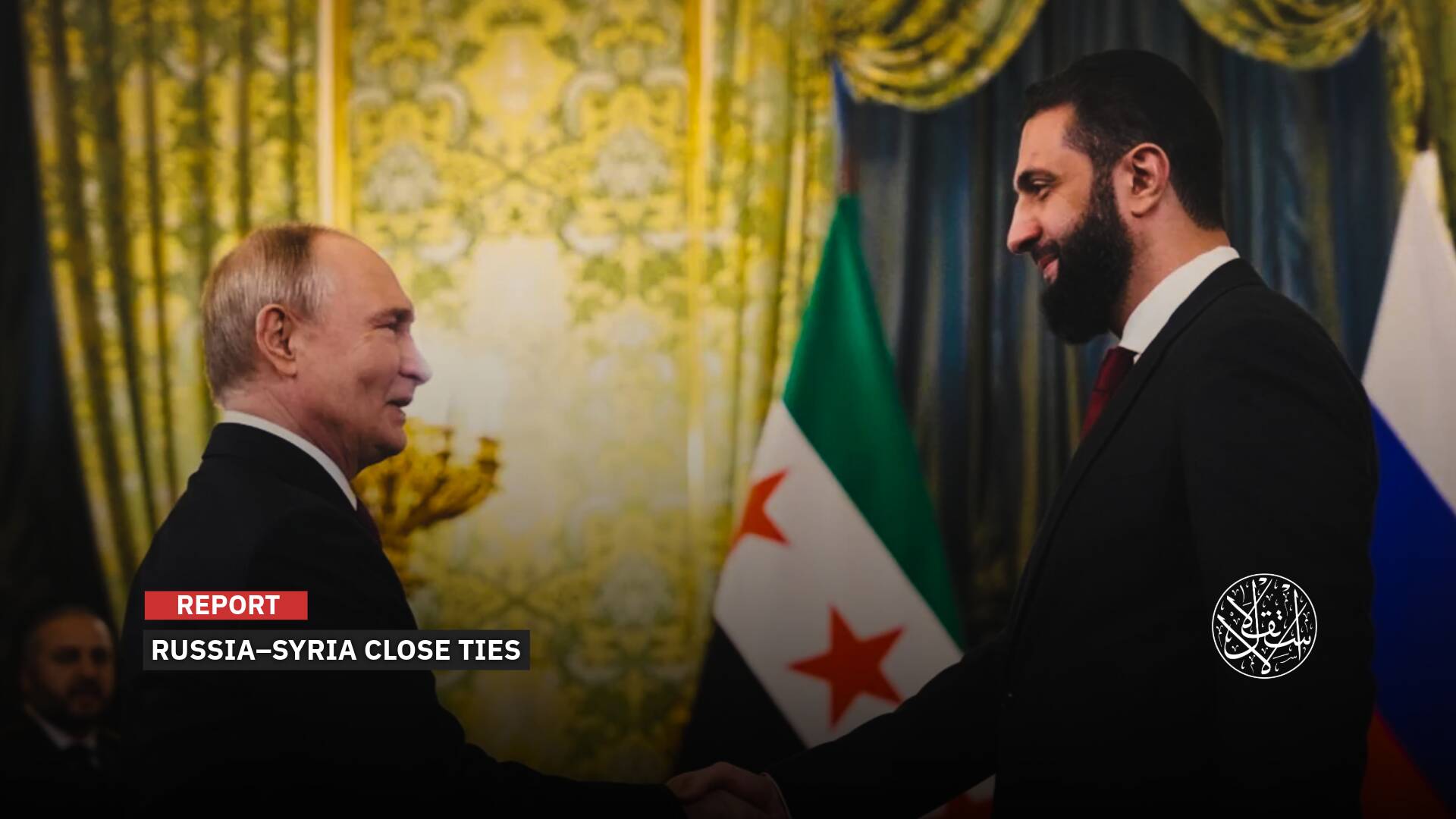Who Are the Winners and Losers of Turkish Democracy With Erdogan’s Victory?
.png)
The Turkish people, along with many Arabs and Muslims, joyously celebrated a vibrant “spring” of freedom inspired by President Recep Tayyip Erdogan’s historic triumph in the presidential elections.
The aftermath of his victory sparked widespread curiosity about the impact on various stakeholders, both domestically and internationally.
President Recep Tayyip Erdogan’s momentous win in the presidential elections resonated deeply with the Turkish people, uniting them with a renewed sense of hope and empowerment.
The atmosphere was energetic as citizens and supporters passionately expressed their enthusiasm for a brighter future under his leadership.
Beyond Turkiye’s borders, Erdogan’s victory had a profound impact on Arab and Muslim communities worldwide, who saw it as an inspiring moment for democracy and self-determination.
The resounding success of Erdogan in the presidential elections sparked intriguing discussions about the notable “winners” and “losers” within Turkiye and across the global stage.
The outcome of his victory triggered a fascinating exploration into the profound implications and shifts in power dynamics that followed.
Analysts have seen Turkiye as a beacon of hope for the peoples of the region, demonstrating that change is possible and that setbacks are not inevitable. They view rejuvenation and determination as essential for progress and independence.
The celebration and joy expressed by the people throughout the Arab world signify a longing for democracy and a renewed hope to achieve fair governance, moving away from the current oppression that has persisted for a long time.
After two decades in power, Erdogan seemed threatened by economic crises, earthquakes, and international interventions aimed at supporting the opposition and influencing domestic affairs to overthrow him.
However, he emerged victorious for the 17th time in his life in municipal, governmental, and presidential elections.
Internally, the Turkish people and Erdogan’s Century of Turkiye Vision emerged as the main winners. The people continue to be the primary beneficiaries as the country moves forward with its development plans and asserts its independence from external influences, becoming a global player in politics, economy, and culture, challenging the West.
With Erdogan’s victory, Islamic orientation issues in Turkiye related to the hijab and the complete end of military rule and curtailing of coups may become irreversible after years of the country being held captive by the desires of the West.
Century of Turkiye Vision
In his victory speech, Erdogan declared that the doors of the Century of Turkiye had fully opened with his progress in the presidential elections, according to the official Anadolu Agency on May 28, 2023.
He further stated that the election results once again demonstrated that no one can undermine Turkiye’s accomplishments.
In statements made on May 16, 2023, Erdogan regarded the elections’ coincidence with the anniversary of the first coup and the conquest of Constantinople as a promising sign for the Century of Turkiye. This vision was announced in October 2022 and included programs and objectives of the Second Republic.
He emphasized that one of the initial goals of the Century of Turkiye Vision is to establish a new constitution as a result of national will and to make Turkiye one of the top ten countries in the world in all political, economic, technological, military, and diplomatic aspects.
It can be said that the biggest loser internally is the secularist coup movement, as the majority of Turks have chosen to return to their Islamic roots and bury the secularism that has hindered their progress for many years.
The results confirmed their political defeat after having already been defeated by the people’s resistance against the coup tanks in July 2016.
Internally, the major losers are all the opposition parties in the Table of Six (Altili Masa), especially Kemal Kilicdaroglu, who is expected to face pressure to resign from the presidency of the Republican People’s Party (CHP).
Meanwhile, Ekrem Imamoglu, the former mayor of Istanbul, is waiting for an opportunity to replace him.
However, in his concession speech, Kilicdaroglu gave indications that he intends to hold onto his party position and will not resign as president, as hoped and planned by Imamoglu and his supporters, potentially signaling a possible “clash” within the main opposition party.
The two parties that split from Erdogan’s ruling Justice and Development Party (AKP), Future Party (GP) led by former Prime Minister Ahmet Davutoglu, and Democracy and Progress Party (DEVA) led by former Minister of Economy and Foreign Affairs Ali Babacan, also suffered losses.
In contrast, the son of Necmettin Erbakan, the former Prime Minister and mentor of Erdogan, Fatih Erbakan, emerged victorious.
He split from his father’s party, Felicity Party (SAADET), which is an ally of the secular opposition. His new party won five seats within Erdogan’s alliance in parliament.
Turkish analysts perceived Erdogan’s warm reception of Fatih Erbakan as a message for his upcoming political project.
Fatih Erbakan is seen as the “official heir” to the Milli Gorus movement instead of the Felicity Party.
" من يعرف اردوغان ورسائله السياسيه لا يمكن أن يغفل أبدا عن هذا المشهد"
— Dr.mehmet canbekli (@Mehmetcanbekli1) May 29, 2023
.
.
" فرفع أردوغان يد فاتح اربكان في البدايه لم يكن مجرد محض صدفه أو نشوة نصر" pic.twitter.com/GFAqPT7RFb
According to Selman Ogut, a professor at Haci Bayram Veli University, the Future Party, the Democracy and Progress Party, the Felicity Party, and the Democratic Party led by Gultakin Ozisik were the biggest losers.
He explained that the parties of Davutoglu and Babacan failed in their first attempt to prove themselves, and described them as “empty balloons” that were overestimated, according to the TRT on May 29, 2023.
The Arab Spring
Renewing hope for millions in the Arab and Islamic world, as well as globally, President Erdogan’s victory shattered the dreams of those whose aspirations for democratic change were suppressed by counter-revolutionary regimes during the Arab Spring.
The extraordinary level of interest in these elections and the subsequent celebrations in many Arab countries, including Jerusalem (al-Quds) and al-Aqsa Mosque, serve as indicators of renewed hope among those yearning for freedom and democracy.
الاحتفالات في ساحة المسجد الأقصى بفوز الرئيس رجب طيب أردوغان بولاية رئاسية جديدة#أردوغان #تركيا #الأقصى pic.twitter.com/RXfnqAyHNx
— يني شفق العربية (@YeniSafakArabic) May 28, 2023
Hence, observers believe that the winners abroad from Erdogan’s victory are the people of the Arab Spring countries, including Syria, Egypt, Tunisia, Libya, and Yemen.
Erdogan has preserved and instilled hope in them to break free from counter-revolutionary regimes, and his successful experience in Turkiye will inspire and guide them.
مبروك فوز #أردوغان للإخوة الأتراك الذين صوتوا له ..
— منصف المرزوقي - Moncef Marzouki (@MMarzouki01) May 28, 2023
ومبروك لكل الأتراك الذين صوتوا مع أو ضد #أردوغان فوز الديمقراطية
تركيا تعطي للعالم أروع الدروس في تسيير هذا النظام السياسي المتميز؛ والعقبى لكل شعوبنا العربية والإسلامية أن ينهجوا على منوال الشعب التركي؛ شعب المواطنين بامتياز… pic.twitter.com/eSmWZbt9wP
They also said: “Joy will be in Turkiye, while houses of mourning will be erected in the countries of the counter-revolution, such as Egypt, Syria, and the Gulf.”
The victory coincided with the publication of a study by the Chatham House – International Affairs Think Tank on May 23, 2023, confirming that authoritarian Arab regimes hope that repression and conflicts have exhausted the people and they no longer have the will to initiate change or demand political and economic reforms.
According to the center, the future of the region is still within reach and will be left to those who believe in democracy and progress to achieve it.
The Independent affirmed on May 21, 2023, that despite the bleak reality indicating the decline of the Arab Spring and the resurgence of authoritarian regimes, and despite the suppression of demands for democracy, reform, and change, the future is still in the hands of the people.
It stated that the opportunity remains for those who believe in democracy and progress to make a comeback.
The Arab Spring was not in vain but a historic moment of political awakening for the people, producing a generation interested in politics, knowledgeable about experiences, and witnessing the fragility of authoritarian regimes, despite these regimes temporarily prevailing over the will of the people.
Egyptian Restraint
It was notable in these elections that the Egyptian media showed relative restraint in taking a position in support of the Turkish opposition against Erdogan due to the reconciliation process that began between the two regimes since the meeting between Abdel Fattah el-Sisi and Erdogan in Qatar in November 2022.
This reservation came in anticipation of knowing the outcome and to avoid Turkiye’s loss again.
Turkiye was one of the prominent countries that stood with the Arab Spring in Egypt, supported the late President Mohamed Morsi, and criticized the military coup by Sisi on July 3, 2023.
Therefore, analysts believe that the Sisi regime is one of the prominent losers, despite the recent rapprochement, because Erdogan’s democratic experience and his win by 52% in the elections, similar to the late President Morsi, will embarrass Sisi in the theatricality of the third presidential elections scheduled for 2024 when a comparison is made between Egypt’s and Turkiye’s elections.
This embarrassment was evident when the Presidential Spokesperson, Ahmed Fahmy, stated that Sisi “sent a message” to the Turkish President on the occasion of his victory in the presidential elections without giving further information or saying whether the message was “congratulatory” or not.
However, he mentioned in the same post but in English the word “to congratulate,” which sparked ridicule.
The confusion of the Sisi regime became evident in its handling of the elections, as the official newspapers refrained from attacking Erdogan, while the pro-regime media figure Ahmed Moussa was given “the green light” to analyze the Turkish elections, claiming that there was a fraud during the first round of voting.
Moussa anticipated Erdogan’s defeat in the event of a runoff and promoted what the Turkish opposition was saying—an ironic reflection of Egypt’s criticism of Turkish newspapers for adopting the statements of the Egyptian opposition.
The relations between Ankara and Cairo have witnessed a significant development after years of hostility since the coup against Morsi and his trial along with the leaders of the Muslim Brotherhood.
Karam Said, an expert specializing in Turkish affairs at the Al-Ahram Center for Political and Strategic Studies, expects two possible paths for Turkish–Egyptian relations after Erdogan’s victory.
Said told the U.S.-based website Alhurra on May 29, 2023, that the first path lies in accelerating the pace of normalization, especially after the transition of relations from the security level to the diplomatic level, shaking hands between Sisi and Erdogan, and then the reciprocal visits between the foreign ministers of both countries.
He pointed out that there are several “pragmatic interests” that push toward Egyptian–Turkish rapprochement in the coming phase, which are not only related to economic interests but also to strategic changes in the region, including what is happening in Syria and Libya.
As for the second path, it may involve “easing the normalization issue” and following a “step-by-step” policy to restore relations with Egypt.
Confusion of bin Zayed and bin Salman
As Erdogan became associated with the Arab Spring, which Gulf regimes fear its influence, his downfall has become an urgent desire for the ruling systems in Saudi Arabia and the UAE.
This was evident in the biased coverage of the UAE and Saudi Arabia’s media, to the extent that Al-Arabiya channel claimed that Erdogan distributed money amounting to 200 lira ($10) to his supporters outside polling stations during the runoff.
قناة العربية عار على الإعلام وفضيحة على الصحافة بكل المقاييس
— م. سلطان الطيار (@SMTayyar) May 28, 2023
الفيديو واضح لأطفال كما هو معتاد في كثير من الثقافات إسعاد الأطفال بشيء كهذا
لكن العربية جعلت منه مادة مثيرة للسخرية https://t.co/4zMZFucZQd
Therefore, Abu Dhabi and Riyadh are among the losers of Erdogan’s victory, despite the rush of the two regimes to congratulate him according to international protocol.
The frustration was evident in the comments of the Emirati palace advisor, Abdulkhaleq Abdulla, who wrote about Erdogan’s victory, stating that he “won by a margin of only 4 points, and that more than 47% of the Turkish people did not vote for him and do not want him as president.”
This statement sparked mockery toward him on social media.
اردوغان رئيسا لتركيا حتى سنة 2028. فاز بفارق 4 نقاط فقط، فاكثر من 47% من الشعب التركي لم يصوت له ولا يرغب به رئيسا.
— Abdulkhaleq Abdulla (@Abdulkhaleq_UAE) May 28, 2023
دعواتكم له بالتوفيق pic.twitter.com/zutgAZZGNP
On the other hand, Saudi political analyst Abdullah al-Rafaee stated that Erdogan’s “pragmatic” victory is the suitable choice for Saudi Arabia in Turkiye today, claiming that Riyadh supported the Turkish economy and that Erdogan realizes that this support “was a lifeline for him.”
Al-Rafaee told Alhurra that Riyadh prefers Erdogan and his party as a “political” option over the competing liberal left because Erdogan’s policies will support Crown Prince Mohammed bin Salman’s project in terms of resolving issues and containing crises that threaten security and stability in the region.
In the Arab context, one of the losers will also be Syrian President Bashar al-Assad, as the Turkish project will continue to support the opposition and may reconsider its rapprochement with Assad after being freed from the constraints of elections.
Another prominent Arab loser is the Libyan coup leader Khalifa Haftar, who was troubled by Erdogan’s support for the Tripoli government and the failure of his project with Egypt and the UAE to control power in Libya and abort its democratic spring.
International Losers
Internationally, the United States, Europe, and Western media in general that shed their professionalism and encouraged Erdogan’s downfall can be seen as the biggest losers.
They had hoped for the victory of the secular opposition candidate who would align with the West, unlike Erdogan, who adopts an independent stance.
Prior to Erdogan’s victory, many Western media outlets adopted an aggressive policy against the Turkish President during the first and second rounds of the elections, which did not witness polarization domestically and did not receive the same level of attention abroad as Turkish elections usually do.
However, after his victory in the presidential runoff, some of these outlets changed their rhetoric toward Erdogan, while others continued to attack him.
Following the conclusion of the presidential runoff elections, Erdogan spoke about “Western media campaigns that targeted him personally,” pointing to what French, German, and British magazines published in terms of news and offensive cartoons about him.
Erdogan referred to alliances formed against him at home over a period of months and cooperated with “terrorist and deviant” organizations, and said that Turkiye had succeeded in confronting restrictions, obstacles, and intrigues, according to Al-Jazeera Net on May 29, 2023.
He added that he thanks God that the opposition “did not succeed and will never succeed because this nation has proven its maturity in all elections and events.”
As for the U.S. President, Joe Biden, he was forced to congratulate the Turkish President, despite initially showing indifference toward the election outcome and seeming to support Erdogan’s downfall due to his independent approach to foreign policy and refusal to comply with Western instructions.
In a tweet, he stated: “I look forward to continuing to work together as NATO Allies on bilateral issues and shared global challenges,” indicating his need for Erdogan in crises such as Ukraine, NATO unification, and others.
Congratulations to President Recep Tayyip Erdogan of Türkiye on his re-election.
— President Biden (@POTUS) May 28, 2023
I look forward to continuing to work together as NATO Allies on bilateral issues and shared global challenges.
According to international affairs expert Wolfgang Pusztai, the next five years “will witness tensions between Ankara and Washington.”
The reason is that Erdogan “no longer has to take his domestic political opponents into account and will be more willing to take risks with military adventures abroad, especially in Syria, and will remain a troublemaker within NATO.”
It is expected that Erdogan will seek to enhance his relationship with Russia not only politically and economically but also in the field of weapons manufacturing, which will cause dissatisfaction in the United States, especially in light of the ongoing war in Ukraine.
In late 2018, President Erdogan warned in an article in The New York Times that if the United States does not start respecting Turkiye’s sovereignty and demonstrate an understanding of the risks facing the Turkish nation, then the Turkish–American partnership will be at risk.
He concluded by saying that Washington must abandon, before it’s too late, the mistaken belief that Turkish–U.S. relationship is asymmetrical and understand that Turkiye has alternatives.
He warned that failure to stop this unilateral path and lack of respect will require Turkiye to seek new friends and allies.
The American media extensively covered Erdogan’s success in the second round of the presidential elections, in which Erdogan achieved victory over his opponent Kilicdaroglu.
Headlines related to the Turkish elections dominated prominent news websites in the United States. However, European newspapers, especially French ones, continued to criticize his victory and claimed that he did not enjoy the support of the Turkish people.
The French news agency and official French television stated: “Erdogan, the narrow winner in a divided society, will he be the president of all Turks?!” This statement sparked ridicule from activists, as it implied that France is united behind Macron while the country witnesses daily protests and describes Macron as “Hitler.”
..
— H.Qatamish حسن قطامش (@HasanQatamish) May 28, 2023
انظروا من يتكلم ؟!!
..
التليفزيون الفرنسي الرسمي:
" #أردوغان المنتصر بفارق ضئيل أمام مجتمع منقسم.. هل سيكون رئيسا لكل الأتراك " ؟!
وكأن #فرنسا كلها "موحدة" خلف #ماكرون .. فها هي الآن تُسخر من #تركيا " المنقسمة "خلف أردوغان" .. عجبي !!#الانتخابات_التركية pic.twitter.com/euzXaqySku
Despite the defeat and the “Ottoman slap” he received in the first round of the Turkish elections, where a campaign led by secular forces called for Erdogan’s overthrow and the selection of a secular candidate, Erdogan continued to face opposition from Western newspapers in the second round.
Under the title Election Win Will Leave Erdogan in a Mire of His Own Creation, Istanbul correspondent Louise Callaghan claimed in a May 27, 2023 article for The Times that if Erdogan wins, as the polls suggest, Turkiye’s problems will have just begun.
She claimed that in the event of Erdogan’s victory, he will remain at the helm of the country, facing numerous deep crises, which he has to some extent created with his own hands, according to the writer.
The New York Times stated on May 29, 2023, that President Erdogan won the elections again after the biggest challenge so far, while The Washington Post said in an analytical news piece that Erdogan survived a challenge from a candidate supported by a united opposition.
Politico stated that Erdogan is in a solid position to influence the future direction of democracy in this powerful country, as well as shape policy both within and outside the region.
Internationally, Serbia, Greece, and “Israel” are also among the losers of Erdogan’s victory, as their projects in the region clash with his plans.
Erdogan supports Muslims in Bosnia, plans to limit Greece, and deals firmly with the Israeli Occupation.
Official Israeli sources estimate that Erdogan will continue his policy of approaching “Israel” during his new presidential term for purely pragmatic goals related to foreign relations.
However, Israeli experts estimate that relations with Turkiye will enter a crisis if “Israel” launches wide-scale aggression in the Gaza Strip or if a war breaks out between “Israel” and Hezbollah, according to Haaretz on May 29, 2023.
International Winners
Erdogan’s Turkiye played a win-win mediating role between Russia and NATO, despite the fact that his victory harms the interests of Russia’s Orthodox allies, especially Serbia, Greece, and Cyprus.
Politico highlighted on May 29, 2023, Turkiye’s important role in the Black Sea Grain Initiative and Erdogan’s influence on international relations, describing him as a rare leader among NATO leaders who maintained good relations with Russian President Vladimir Putin even after Moscow’s invasion of Ukraine.
For this reason, Putin congratulated his “dear friend” Erdogan, saying that his victory is evidence of the Turkish people’s appreciation for the independent foreign policy pursued by Turkiye, according to Reuters on May 28, 2023.
Putin’s message to Erdogan clearly indicated what he referred to as support for the Turkish people in their efforts to strengthen the state’s sovereignty and pursue an independent foreign policy.
Putin also emphasized the great importance of joint projects such as the Akkuyu Nuclear Power Plant in Turkiye, being built by the Russian government-owned company Rosatom, and the establishment of the gas center proposed by Putin in Turkiye.
{filedir_7}%D9%81%D9%88%D8%B2.webp
But how will Erdogan benefit from these gains and losses locally and internationally?
Professor of International Affairs at Qatar University, Muhammad al-Mukhtar al-Shinqiti, identifies six challenges that Erdogan will face after his victory in the next five years, marking the beginning of the second century of modern Turkish statehood.
In an article published on May 29, 2023, on Al-Jazeera’s website, he explains that the most prominent of these challenges is “overcoming the identity fragmentation that Turkiye has suffered for 100 years after being imposed upon by a marginalized minority that assumed the role of a beggar at the Western table.
He points out that Erdogan and his Justice and Development Party colleagues have made significant progress in healing this identity wound and achieving some level of reconciliation with their own people.
However, there is still a need for extensive work in the fields of education, culture, and others.
The second challenge is the “dilemma of political, sectarian, and racial polarization.”
It is believed that the decline of the Republican People’s Party in these elections and the failure of its leaders may be an opportunity for this party to transform from a solid sectarian bloc into a more diverse and reconciled political force in line with its Islamic ideology and its known Ottoman roots.
The third challenge is “preparing for Erdogan’s succession within the party and the state.”
This is Erdogan’s last constitutional term as president, and the project he initiated must continue by preparing leaders who will succeed him and carry the torch after him.
The fourth challenge is the “formulation of a new constitution” that aligns with the society’s social and cultural realities instead of the current secular constitution that was imposed by the military and has undergone several amendments.
The fifth challenge is greater engagement in solving some regional dilemmas that affect Turkiye, such as the war in Syria, by reaching a practical formula with Russia for political change in Damascus that responds to the aspirations of the Syrian people.
Lastly, the challenge of repositioning strategically in the region so that Turkiye’s position aligns with its historical status and leadership in the Islamic world, amid rapid changes in the international system, and seeking to achieve the hopes placed on it by the peoples of the Islamic world.
Ahmad Ramadan, a leader in the Syrian opposition and media spokesperson for the National Action Party for Syria, stated that “a massive investment has been made to change the direction of the ship” after Erdogan’s victory on the external level.
He pointed out the significant impact of Erdogan’s victory on the arrangements of the world order and the role of influential regional countries after a bone-breaking battle where influence was used in its various forms of enticement and intimidation.
In an analysis of Erdogan’s victory regionally and internationally, Ramadan stated on his Twitter account: “A nucleus of an axis is born in the region, based on development and aiming for emancipation from poles and their wars.”
He believes that “regionally,” Turkiye will be a symbol of change imposed by circumstances, and it will not have to make concessions dictated by electoral conditions.
It will extend its hand to emerging countries while distancing itself from failed ones and outdated regimes.
He added that Erdogan will find himself compelled to review his policies regarding Syria after witnessing the level of popular sympathy from Syrians and Arabs, as well as the betrayal and treachery from the Assad regime and its allies.
He emphasized Turkiye’s “international” consolidation of its position within the club of stable democratic countries and its efforts to enhance its status within the G20, striving to enter the group of the top ten major economies.
Sources
- Erdogan: The doors of the “Century of Turkiye” were opened with these elections [Arabic]
- It talked about restrictions, obstacles and intrigues -- Erdogan: The Western media targeted me personally [Arabic]
- Erdogan winning a new presidential term: Wide Arab interest and conflicting feelings [Arabic]
- The American press devotes ample space to Erdogan's success in the elections [Arabic]
- The end of the Arab Spring and there is a price to pay


